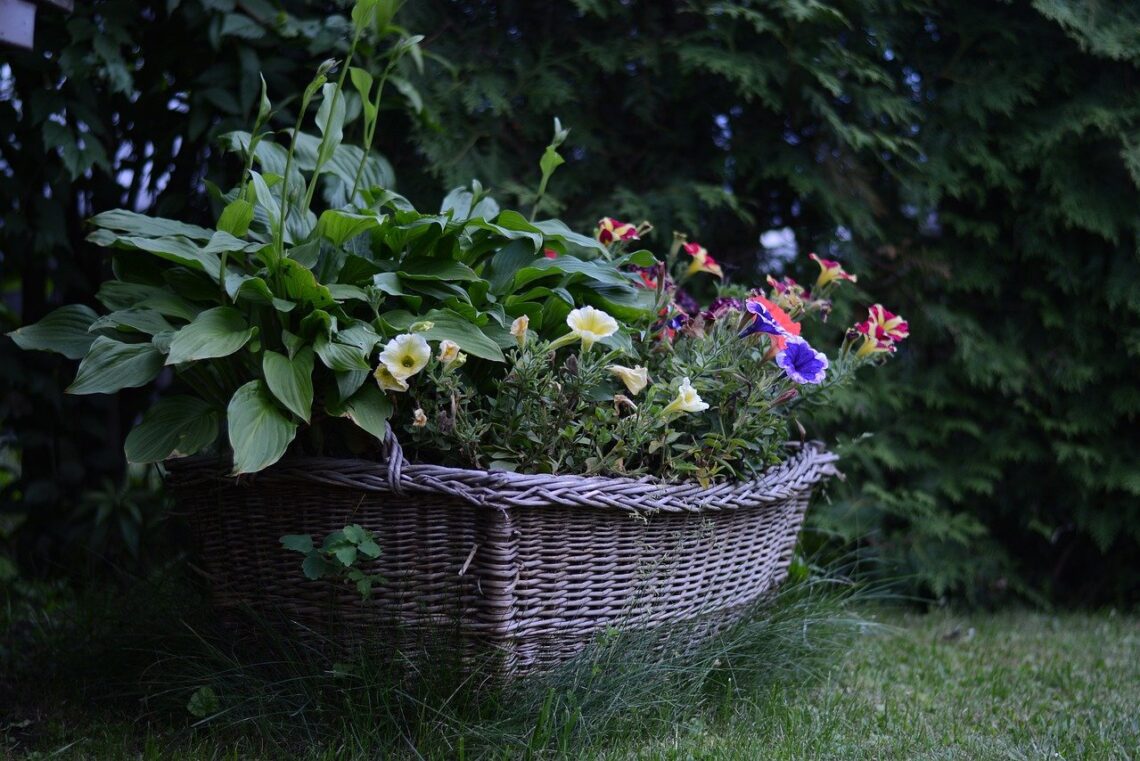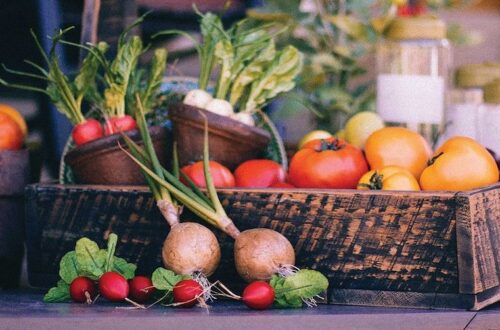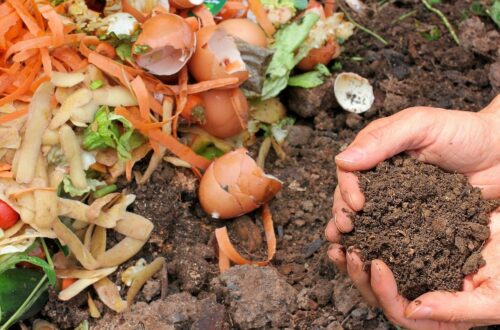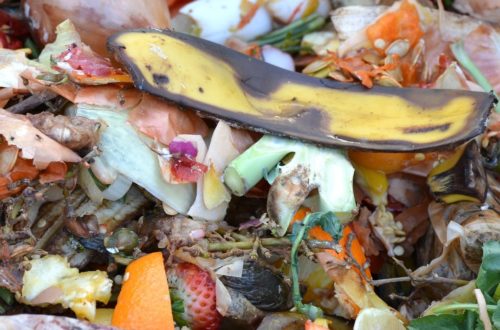If you are reading the Green Living Journal, you probably are committed to protecting the earth and reducing your drain on its plentiful resources. But the term “recycling” in the garden environment is often overlooked by mindful gardeners. Your garden is the most precious and vulnerable area you can impact and has all of the basics from which other recycling concepts arise.
Consider: “they” are not importing atoms from Mars, or any farther planet, according to NASA. The particles that make up every rock, animal, plant, fungus, bacteria, or other earth forms—living or inanimate—were here at the creation of the planet. Our natural world is the simplest form of recycling. The easiest way to mimic that is to compost organic material, keeping the nutrients in your now-dead plants (and kitchen scraps) on your land for reuse in the form of new plants. Although it is heartening to see yard debris and scraps placed in the compost bins, it typically means the gardener will have to purchase commercial fertilizers to feed the new crops. And, you never know what those other “contributors” used in their gardens that ended up in your now-available-for-purchase compost.
This article will suggest how you can put into effect the five “R” s of mindful consumption: Refuse, Reduce, Reuse, Repurpose, and (if all else fails) Recycle. And, if all else fails, trash it.
Refuse
We have been importing plants from other regions, countries, and continents since the wagon trains set out. With those non-native plants come diseases and insects that then require pesticides to control. If you need to augment your compost with an additional fertilizer, check the label to see if it has the correct proportions of nutrients. You may be buying something you don’t need. Don’t buy perishable products that cannot be used in a season, such as seeds that lose viability each year and become useless. Catalog your garden tools and equipment to make sure you don’t need another trowel.
Reduce
We all have gardening choices, whether it be pesticides, seeds, or plant characteristics. Buy plant varieties that are resistant to disease, so no pesticide will be needed. Landscape with plants that don’t need to be watered, or watered sparingly during hot, dry months. This is known as xeriscaping or dry gardening. Many native plants are adapted to our environment and don’t need supplemental water, saving that resource. Use gray water (without chemicals in it). Use soakers and timers and don’t water during the heat of the day, or spew it into the air. Don’t water-cement; install water permeable pavers so the water reaches plant roots. Mulch plants to hold water.
Use the least toxic pesticide, if one is needed at all since a few holes or notches in a leaf can be tolerated. Follow label directions, so just enough is applied and not in a fashion that jeopardizes the health of other non-target plants or animals. Reduce your use of plastic sacks by collaborating with fellow gardeners to buy bulk soil, mulch and compost—and you’ll save gas!
Reuse
Wooden pallets can be reused to build raised bed gardens (but avoid treated wood that may leach chemicals into the soil). Thick plastic sheets can be used to line the inside of the beds made of wood, or cement blocks, which may contain fly ash. Weed control can be sped up by spreading black plastic sheets (used, of course) to solarize the soil to keep out water and sunlight. After being thoroughly washed and sanitized, last season’s plant containers can be used to start this year’s garden. And, of course, last year’s plant material can be reused to fertilize this year’s crops.
Repurpose
You need not discard containers and other structures after their initial use. Bathtubs, buckets, sinks, wagons, and even pickup truck beds have been used to grow entire gardens (just make sure they drain well). Plastic margarine containers can be “planted” in the soil, leaving an inch above the ground. Put an inch of beer (or a water/yeast/sugar mixture) in, and watch the slugs flock there and drown! Dark, solidly sealing prescription bottles can house seeds you need to save for next year. (Just be sure they are kept from heat, light, moisture, pests and maintained at an even temperature. And most lose 20% viability each year, regardless of storage conditions.)
Old gutters can be hung along a wall or fence to hold plants, but must drain. Cardboard egg cartons can be used to start seedlings from seed and then planted directly into the garden, where they will decompose. (Plastic egg cartons need to have the seedlings transplanted into garden soil.) Old windows can serve as “roofs” for cold frames, which keep in heat at night and get fresh air and sunlight during the day.
Recycle
As we currently use this word, it means to find an outlet or method to send solid waste so it can be changed into another form, purpose, or use. But someone else is doing it. If you haven’t been able to refuse, reduce, reuse or recycle, appropriate waste can be transported somewhere else for “them” to do it. While Oregon has been at the forefront of this movement in the U.S., the laws and rules vary widely among cities, counties, and regions. This makes a generalization difficult. So, consult with your solid waste, sustainability, or resource conservation authority so you can follow their protocols. Some may have restrictions on sizes or materials in an ever-changing landscape of rules.
But No, There’s More!
You can also re-home what has become unusable to you. Groups such as Freecycle.org provide ways to find others to love what was yours. Seed swaps and plant fairs (often free) are ways to share your garden wealth. And an overabundance of zucchini can be the start of a “free squash” stand near your driveway. In a time when every food scrap counts, you, too, can contribute.
Kris Lamar has been a Master Gardener (and Master Recycler) since 2013. She is a speaker with the Clackamas County Speaker’s Guild and a member of the Extension Ask an Expert panel. She is also a lawyer and a retired judge.






